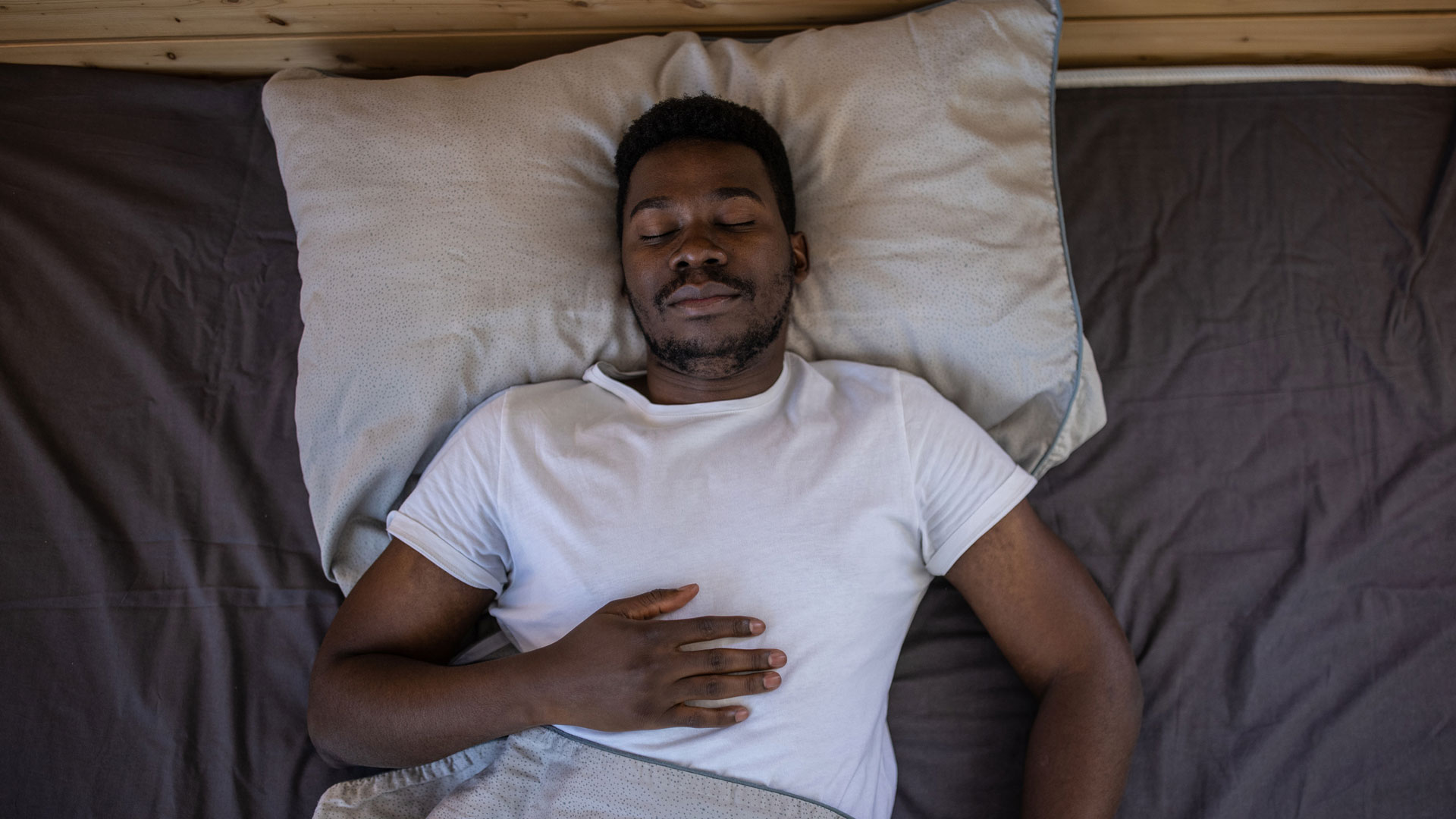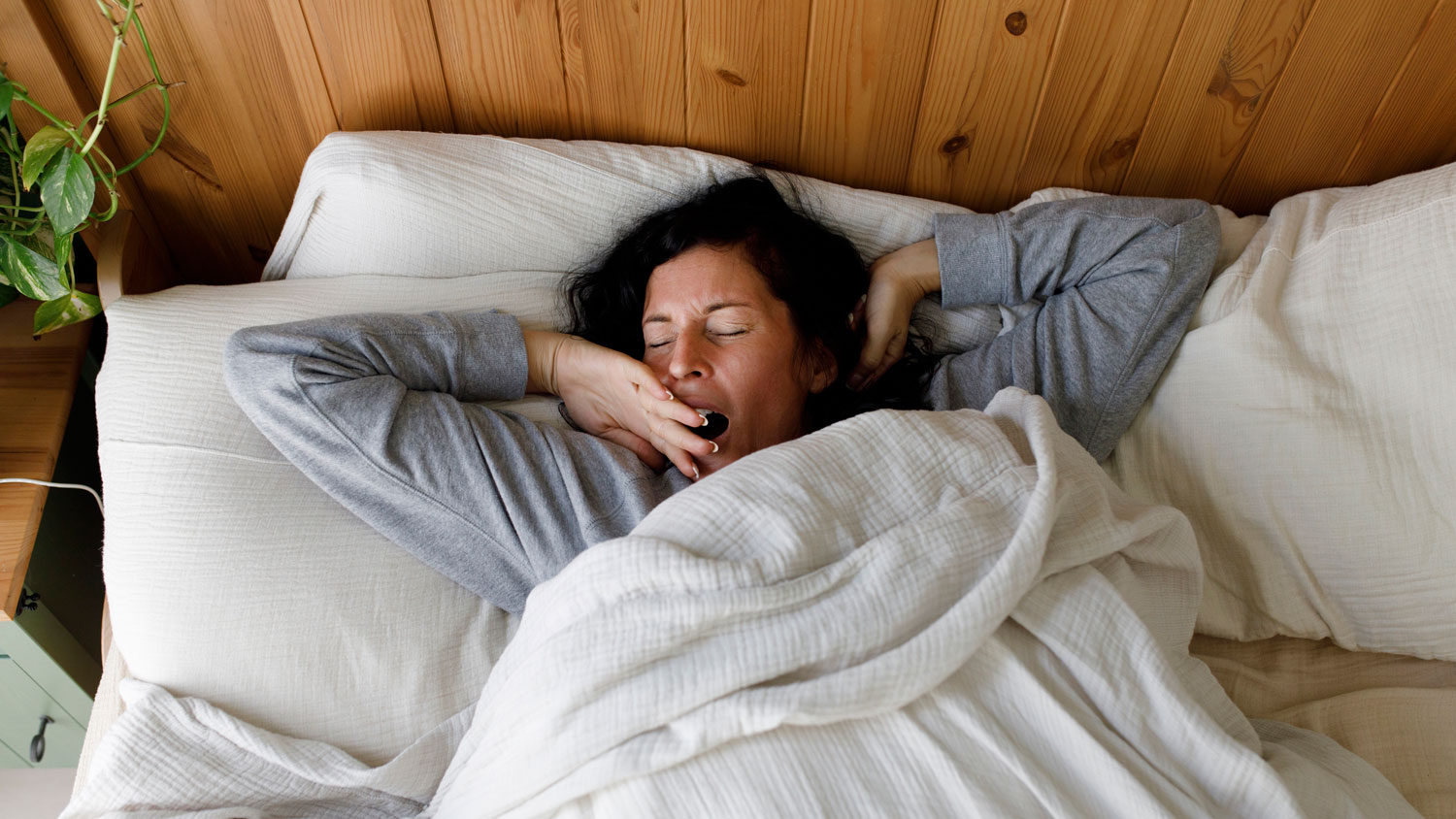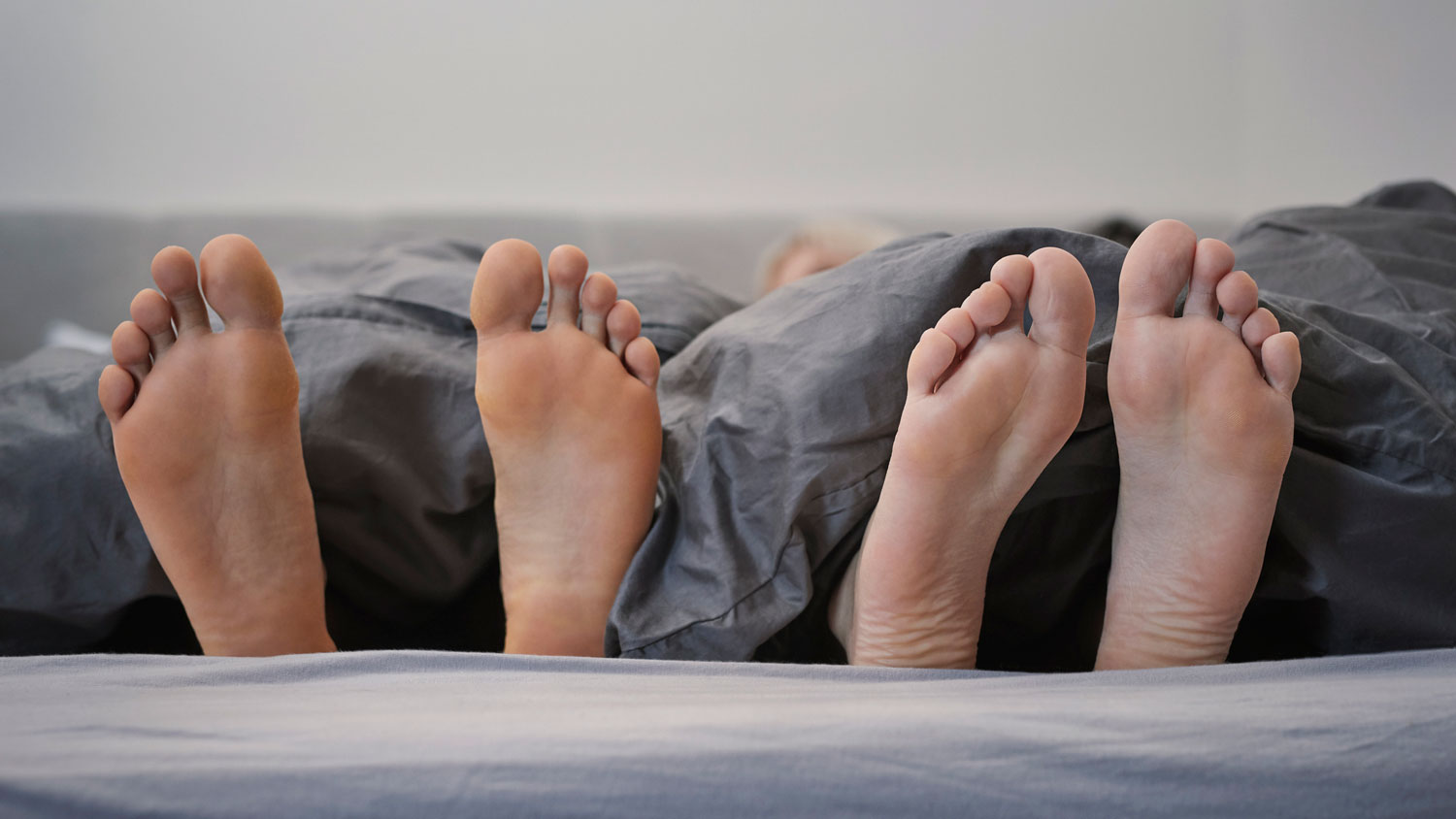Is sleeping on your back good for you?
We investigate sleeping positions and their health benefits

As babies, we slept on our backs, as this was thought to be the healthiest and safest sleeping position for us. However, as we grow up, we naturally gravitate towards what’s most comfortable for us – so is sleeping on your back good for you?
We spend a good proportion of our lives in bed, and while we do things when we’re awake to keep us healthy and feeling good, the same should be done while we’re asleep – so looking at our sleep position is key.
There are many good and bad health benefits to sleeping on your back, but can they have long-term effects on your health and is there anyone who shouldn’t sleep on their back? We talk to the experts and look at the latest research on whether sleeping on your back is good for you.
Is sleeping on your back unhealthy?
For some of us, with certain health problems, such as snoring, reflux or even sleep apnoea, sleeping on your back can be unhealthy. However, if you don’t suffer from any of these health problems, sleeping on your back can be very good for spine alignment.
According to Yale Medicine 37 million Americans are habitual snorers - meaning either you or your partner won’t be waking up feeling very refreshed. So why does it happen when we sleep on our backs?
“Back sleeping increases the chance of the tongue falling back into the throat, the mass of the neck weighing down on the airways, and then obstructing the airways,” explains Dr Guy Meadows (PhD), sleep expert and co-founder of the Sleep School app.
Try sleeping on your side, or using more pillows to prop up your head, as this will stop your tongue from falling into the back of your throat and will stop the snoring.
Sign up for breaking news, reviews, opinion, top tech deals, and more.
Where should you put your arms when lying on your back?
Lying on your back to sleep can be uncomfortable for some, and many of us wonder where to put our arms.
Meadows believes you should do whatever feels comfortable for you, however, having them below your head, whether they are at your sides or on your stomach or chest, will help you wake up feeling refreshed. Having your arms stretched out or under your head could result in numbness or tingling or nerve pinching.
What are the benefits of sleeping on your back?

“Sleeping on your back has been touted as the best sleeping position and that's simply because you get optimal spinal alignment,” says Meadows, “The spine has been allowed to have that natural curve from tailbone through to neck and head, and that's when someone's sleeping with just a relatively small pillow.”
Other benefits include avoiding tension headaches and sinus problems, plus also avoiding skin issues on the face. When you sleep on your side or front it can lead to wrinkles on the face, due to how your skin gets compressed from the position, or acne, from the bacteria on your pillowcase.
What are the downsides of sleeping on your back?
Snoring can be a massive downside to sleeping on your back but - can be made less severe by changing sleep positions, as it helps to open your airways (see our article on how to stop snoring for more tips). However, sleep apnea is more severe and can be made worse by your sleep position – in fact, an estimated 30% of Americans have this condition, with some of us not even knowing. If your symptoms, daytime drowsiness, and sleep disruptions, don’t improve after changing sleep positions, consult a doctor about how you can make your symptoms more manageable.
Back sleepers suffer from sleep paralysis a lot more than people who sleep in other positions, while another downside of sleeping on your back can be acid reflux or heartburn: “One of the challenges with lying flat like that is it increases refluxes – so you may need to be more propped up so you're still lying on your back – this means you're at more of an angle, with you back propped up,” explains Meadows.
Some also find sleeping on their back uncomfortable, as the head doesn’t have much support – so finding the best mattress and best pillow for your needs is important, says Meadows.
“A lot of people are sleeping on mattresses which are the wrong support for them, or they’re not offering as much support as they should be – we’re meant to change our mattress every eight years. After that point, the structural integrity of the mattress begins to degrade.
“It's highly likely that the mattress or your pillows are not performing at their best - we can't forget the structural integrity of the pillow itself, which we are meant to change every one to two years.”
Some pillows are specifically made for back sleepers, so make sure you’re using the right one if you either sleep on your back or want to switch to this sleep position.
Is sleeping on your back good for your heart?
Sleeping on your back can be good for your health, however if you have been diagnosed with any heart problems, back or stomach sleeping positions can put too much stress on the heart.
“There is a small piece of evidence showing that sleeping on your right side could be better for our heart. It lowers our heart rate, it reduces our cardiac output, so the volume of the sort of blood pumped out and it reduces in sort of palpitations. So, it's putting less stress on the heart,” says Meadows.
What's the healthiest sleeping position?

Sleeping on your back may be good for your spine, allowing it to stay aligned - and could be the healthiest for anyone who doesn’t snore or suffer from reflux.
However, sleeping on your right side is better for anyone with heart problems, while those who are pregnant may find their side the most comfortable and healthiest for the baby. For many people, the neutral alignment of a semi-fetal side posture is the healthiest sleeping position. Tummy sleeping is the least healthy, as most of our body weight is found in our stomachs, meaning your spine will be out of alignment as you sleep.
Of course, you should also listen to your own body: “Everyone is a specialist in themselves,” reveals Meadows, “So it's about listening out to the information that your body is sending and the little aches and the pains you may get at night or when you wake up.”

Sarah is a freelance writer - writing across titles including Woman&Home, Fit&Well, TechRadar, the Independent and the BBC. She covers a variety of subjects, including trends in beauty, business and wellness - but her biggest passions are travel and fitness. She can normally be found trying out the latest fitness class or on a plane to an exotic destination. While she loves to combine the two - signing up to do hiking holidays in LA, intense boot camps in Bali - last year she went on her dream activity holiday: paddleboarding around deserted islands in Croatia.